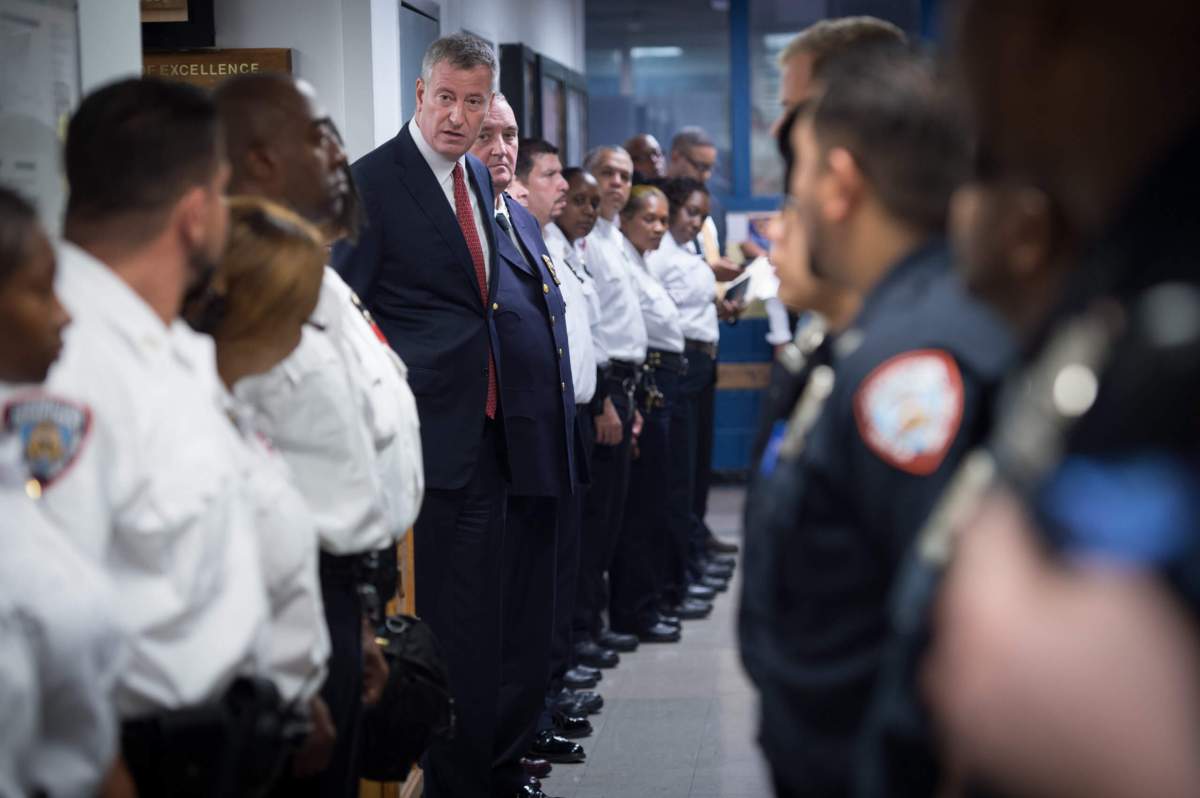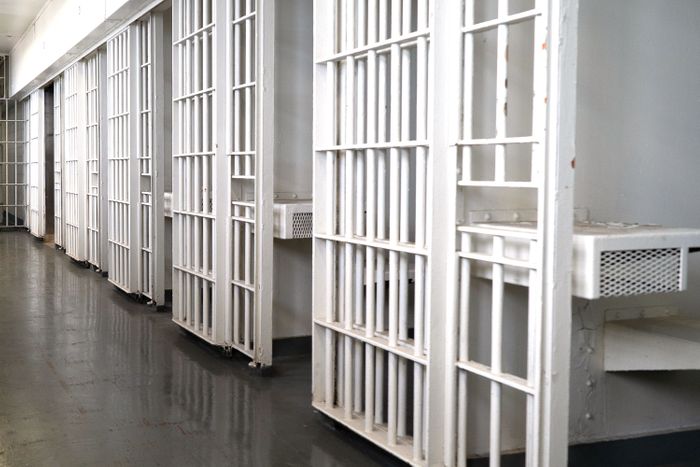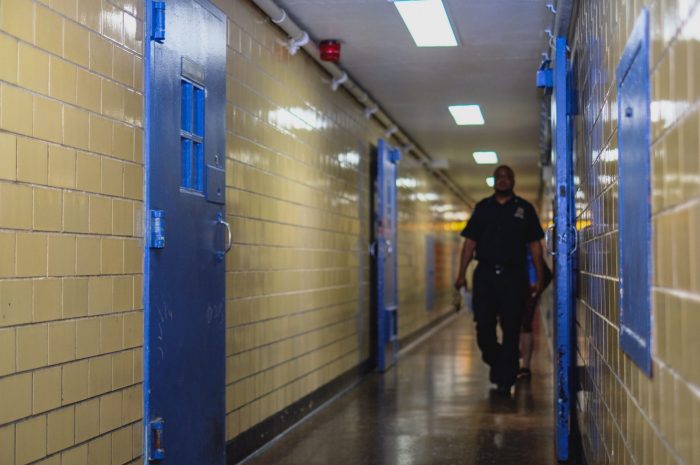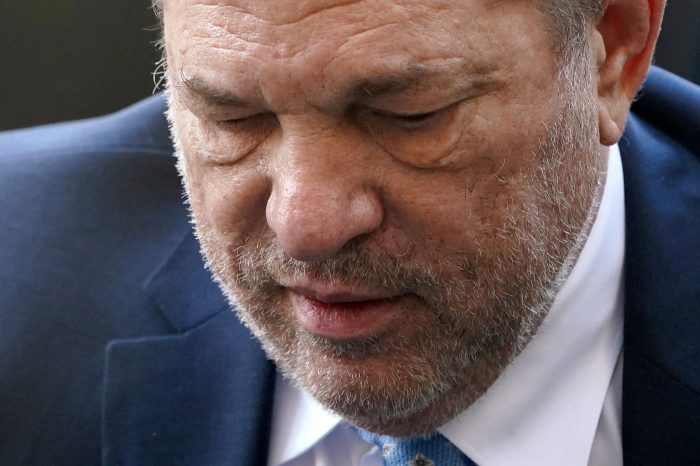While maintaining that reforms on Rikers Island are steady and balanced, Mayor Bill de Blasio declined on Wednesday to accept responsibility for conditions contributing to the rash of inmate deaths at the correctional facility this year.
A federal monitor recently wrote that the city has made no significant progress in the jail, when it comes to security and mismanagement. More than ten detainees have died, and five are confirmed suicides. The monitor wrote that the city failed to implement new suicide prevention policies.
But when pressed at the Sept. 29 briefing as to whether he shouldered the blame for the situation, de Blasio seemed to disagree.
“The facts, as I understand them, are different, respectfully,” de Blasio told reporters.
“We lose people every year and every single time it’s a tragedy. But the way I look at it is this: Whenever there’s been something we could do, we’ve tried to do it to fix the situation in Rikers Island,” the mayor said.
In the Sept. 22 letter obtained by NY1, federal monitor Steve Martin wrote, “The City’s and Department’s plans have a significant void. They do not address the ubiquitous mismanagement and prevalent security failures within the jails. Stated bluntly, the City’s and Department’s plans are not sufficient to address the imminent risk of harm to people in custody and Staff flowing from the poor operation of the jails.”
De Blasio maintained Wednesday that he remains focused on addressing the situation at Rikers, and that short term fixes aren’t working because the situation is beyond repair.
“Reducing population is crucial, but there’s also a lot of other elements of the Rikers equation that we’re working on right now, including most especially getting all the officers back and getting additional help from other agencies to relieve some of the pressure,” the mayor said.
A reporter brought up Martin’s earlier letter about the Rikers crisis in May, asking the mayor why he didn’t start any emergency protocol until September.
“If you just had COVID Or you just had the 85-year-old Rikers Island facility that should have been closed a long time ago, you put those either one would have been bad enough, you put them together, it’s been extremely difficult,” de Blasio said.
He confirmed that he is at odds with correction officers unions, and said that they have been a “big part of the problem.”
The Corrections Officers’ Benevolent Association, which the city sued for allegedly causing the staff shortages, has been de Blasio’s direct target.
“If anything proves that he doesn’t want to support us, it’s evident by his visit the other day to Rikers, where he didn’t speak to a single corrections officer to see how they were doing,” Michael Skelly, a spokesperson for COBA, told PoliticsNY.
The COBA rep believes it is the mayor’s negligence in policy that has caused the inhumane conditions in the jail, putting officers and inmates in danger.
“Like virtually every other crisis in New York City that the mayor has created, he continues to take zero responsibility,” Skelly said.
The mayor’s current action plan includes supporting Governor Kathy Hochul’s release of 191 inmates with parole violations, enforcing suspensions for officers who continue calling in sick, and calling for the closure of the jail.
Police Commissioner Dermot Shea stands in opposition to decarceration, saying on Sept. 28 that those who are there “deserve to stay in there.”




































